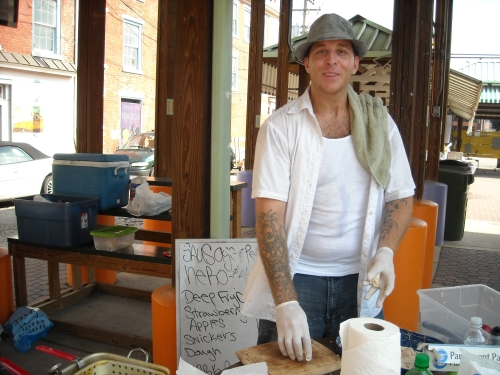It’s no surprise that college student’s don’t just go to college to study. They go to meet new people, get out on their own, and party, sometimes with the assistance of alcohol or drugs. VCU is no exception, with hundreds of parties going on every weekend, both on campus and nearby. However, what is surprising is that the statistics show that VCU has one of the lowest rates for alcohol and drug violations (which includes both arrests and campus disciplinary actions) in the state.
In fact, statistics from the national Office of Postsecondary Education show that VCU had only 32 arrests for liquor and drug violations in 2008, which is only 0.5 arrests per every 1,000 students. By comparison, nearby Longwood University had almost seven times that number, with 13.1 liquor arrests per 1,000 students (although the university had significantly lower drug arrests, though those numbers were still higher than VCU’s).
In addition to low numbers for arrests, VCU also had low numbers in terms of how many disciplinary actions were reported as a result of drug and alcohol use, with only 0.03 liquor violations per 1,000 students and no drug violations. Again, other Virginia universities had much higher numbers, such as the College of William and Mary with 21 liquor violations per 1,000 students, as well as Richmond University that had the highest liquor violations in the bunch with almost 69 violations per 1,000 students. In addition to overall low numbers, VCU has also seen a drop (for the most part) in these numbers since last year (see the graph below for VCU’s numbers).
The question is: why are the numbers so low? Linda Hancock, Director of the Wellness Resource Center (or “The Well”), thinks that while she’d love to think that low numbers are a result of the education and information provided by the Well, the truth is much more difficult to pin down.
“The longer I work on college campuses, the more I realize that all campuses are different and no answers are simple,” Hancock said. She went on to say that VCU with its urban location faces different problems that more rural universities (like, for instance, Richmond University) don’t have to deal with.
She explained that VCU’s low numbers were probably not a result of squeaky-clean students, but more likely the result of students blending into a very large, complex environment. She went on to say that many students work in addition to going to school, leaving them less time and expendable cash to spend on partying. She also mentioned the hard work done by campus police to protect students in this complex environment.
“Campus police don’t just have students to deal with,” Hancock said, explaining that VCU campus police have a tough job on their hands: not only do they have to discipline students, but they also have to protect students, which means dealing with any city-wide crime that might affect the lives of students.
Hancock went on to say that, when disciplining students for alcohol and drug use, the important thing was to enforce rules with ‘the stupid people’ or, in other words, the students who are dangerous with their substance abuse. She noted that when these people are disciplined effectively it creates a safer environment for all. However, she also realizes that there is more work to be done.
“You know that the problems are out there,” she said.
Despite the variety of factors at work, Hancock has also found that an education about alcohol and drug usage can be very effective. The Wellness Center puts out lots of information about drug and alcohol use, including seminars, lectures in classes and residence halls, and the Stall Seat Journal in the restrooms on campus. Hancock specifically mentioned a freshman seminar that the Well holds called “Choices” that quizzes and educates students about issues they face.
At the seminar, students are asked to admit information such as how often they get drunk or use drugs. Hancock explains that actual numbers are lower than most students think, and many students don’t spend their nights partying.
“Just knowing that most people don’t get trashed all the time…maybe that’s part of it,” Hancock said, explaining the low number of alcohol convictions on campus.
Students at VCU also agree that their university isn’t necessarily one of the biggest party schools in the nation. Nate Gordon, a senior at VCU, explains that while the VCU party scene has the typical weekend parties that usually involve drinking games, the campus isn’t known for its drunken antics.
“I could be wrong, but I would say that this area is not infamous for producing raging college-aged alcoholics,” Gordon said. The violation numbers do appear to agree with Gordon’s statement.
Despite impressive low numbers, it is important to remember that these numbers are the result of several factors, and students should continue to be safe every time they head out for a weekend party.
Explanation of Data: The data that was used to complete this report was obtained from the Office of Postsecondary Education crime database, which includes all crime reported from universities across the country. For this article, the data came from their statistics on drug and alcohol violations. Those statistics were made into a unique database comprised of universities in Virginia which were selected on basis of overall popularity and proximity to Richmond (for the purpose of the concentration on VCU). The database also includes new calculations, which is where the rate and percent calculations came from. To see the complete data set, click here.




